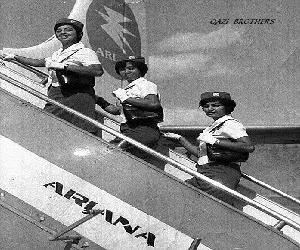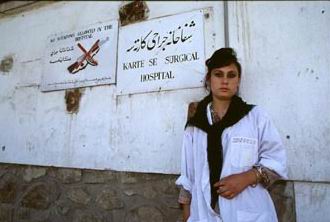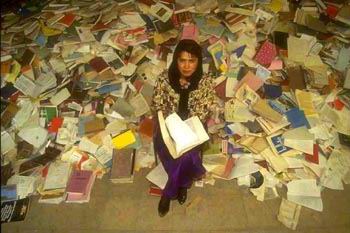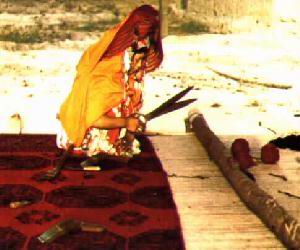

 Education of women in Afghanistan
Education of women in Afghanistan
 By: Dr. Yasmin Jana
By: Dr. Yasmin Jana
Introduction:
Afghanistan becomes an independent state in 1919. The ruling monarch maintained political neutrality during World war two. In 1964, Afghanistan becomes a constitutional monarchy. After the last ruler, Zahir Shah, was removed from power in 1973, the country was proclaimed a republic by its first president, Muhamad Daud a great personality in history of our country. A coup in 1978 brought the Communist People's Party to power. The country soon faced growing protests and resistance, followed by an invasion from the Soviet Union in 1979.
The resistance to the invasion, heavily influenced and funded by external sources, was formally channeled into seven Pakistan and several Iran based Mujahideen parties. Finally the Soviet Union was forced to withdraw in 1989 and the government it had supported fell in 1992 when the Mujahideen occupied Kabul. Inter party fighting in Kabul paved the way for the Taliban Islamic Movement in 1994. As of 2001, the Taliban controls most of the country.
Since the Soviet invasion, much of the infrastructure, economy, and social networks in Afghanistan have been destroyed. An estimated 1 million Afghans have been killed, 3 million injured or disabled, and 500,000 women widowed. Numbers of refugees in Pakistan and Iran has ranged from 6 million in the early 1990s to 3.6 million in 2001.
Education of Women in Afghanistan:
The 23-years, more or less of non-stop war has very strongly effected the entire country. Kabul as a capital city always has been the centre of educational system of the cuntry turned to a destroyed city. Kabul university which was found in 1933 and is one the country's important institution of higher education was no longer able to educate and qualify students in our society. Due to these conflicts our educational system lost their quality and even in same case the schools and universities around the country were closed. In fact Afghan women were the main victims of the upheaval in our country.
In my opinion at the present time edcation is one of the most important issue in our cosiety and I believe It has to be taken into serious consideration. An illiterate society like an illiterate person, is helpless to themselves and to the society. The statistics around the world shows that a country has to have at least forty percent of its population functionally literate for it to acquire a sustained rate of economic growth. As we all know economic growth is essential in order to become developed.
Afghanistan is a country where their 85 to 90% of its people are illiterate. At the present, probably, less than 25% of all age is enrolled in grades 1-6 of the country. One of the major problem for the last 6 to 7 years in our country was the education of women in Afghanistan. Although female literacy in Afghanistan was never high, but in some province they did had the opportunity to attend schools and progress further into higher institutions. In 1919 when King Amanullah came in power for the first time Afghan women were given the opportunity of having right to education. A few years later In 1928 women's primeray school was found, where a number of Afghan women were able to attend and get some sort of primary literacy. Also in the same year for the first time a group of Afghan women were send outside country for training to become professional nurses. Although liberating women of Afghanistan was a great idea and it was mostly welcomed by a number of educated people, but sadly it wasnít an acceptable idea for the rest of the society at that time. So soon it faced growing protests and resistance.
In 1933 when the Kabul University was found once again we could clearly see the Afghan women's part in higher education. Among the first graduated students from Kabul University, 223 of them were Afghan women, which shows their ability and enthusiasm towards education. Later on in 1959 when Muhamad Daud came in power once again the light of freedom and having right for education started to shine again. Aslo one of the other important issue considered by Muhamad Daud's goverment was that women could work in offices and any educational sectors, which certainly was a great move towards womenís liberation in Afghanistan.But in reality in our society Afghan women place was always at home, which clearly affected the society in general, but children mainly. Throughout the history of Afghanistan the majority of this nation acted against womenís liberations and specifically their education. The question is why? Is it in their mentality or itís in their believes. I as an educated woman of Afghanistan can not find answer to that. If they believe that Islam says women should not be allowed outside and shouldnít be educated in this case Iím sure that itís a creation of a new Islam specifically designed for women of Afghanistan because I couldn't find nowhere in Islam where it says that women shouldnít be educated. To my knowledge such a thing doesnít exist, so when they going to learn and accept that Afghan women are part of their society and their nation, and have every right to work outside and have access to education. As it said "if you educate a women, you educate the world, if you educate a man you educate a person".
Throughout the history of this country women of Afghanistan never had an appropriate right to education but despite these all very low percent of women were involved in education as we said before. As statistics show in May 2000 that before the 1979 Soviet invasion, only 5% of women graduated from high school in all entire country but during the Taliban rule is substantially lower, standing at approximately 1 to 2%. During Taliban regime women of Afghanistan were completely isolated from the society, which was shocking for the rest of the world. Stressing that the Taliban regime, imposing apartheid based on sex that has denied women's identity itself. First of all they closed all women's schools and colleges in Heart, Kabul and in other cities of Afghanistan. Soon afterwards, however, the Taliban authorities converted all major women's education institutions in Kabul and elsewhere into religious seminaries.
In may 2000 regarding to Time asia report that in January after nine months of hard work by a few dedicated Afghan women they won permission from the Taliban to open the doors of Naswan Shashdarak to girls studying in grades one to six. But there was still a rare success with the expectation of doctors and nurses.
At that time Afghan women were still banded from working outside the home, and schooling is prohibited for girls over age of 12. The small, home-based school was run by female teacher-many of whom served as the backbone of Kabul's public education system before the Taliban banned them from work by this time were flourishing quietly. Even the government has begun to make noises about relaxing the ban on female education, observers were remaining wary.
The United Nation estimate was at that particular time in Kabul that only a few thousand girls out of total population of 2 million were receiving some form of schooling. Their Afghan women reaction to that was " it is better then nothing". The children were sitting on kilims laid over the dirt floor. They mostly shared tattered, well-thumbed textbooks but at least they were learning. Despite having such a terrible time it was amassing to see these girls interest to education and lining up to join queue in the cold winter.I believe surly we have to pay our respect and appreciations to these female teachers, who despite having such a difficult time their passion to education was still a live.
Although the Taliban government was unwilling to promote official schooling but there were small group of women were allow to finish medical training at Kabul's military hospital, which run by General Shalia Siddiq, one of Kabul's best surgeons. In fact the culture of our society where women lack any real power, and which views education as the province of men. Sadly this is the real world of our society not only during the Taliban time it has been always. For e.g. Bibi Jan mother of nine children, in an interview she said here husband wouldn't allow their 4 daughters to go to school because he thinks only boys should be educated. She says " When I was a kid I thought maybe I would be allowed to go to school but the men in my family didn't give me permission, in here 30s and dressed head to toe in a blue burqa and feel as a presenter kept in their own home and own country. She adds, "I want my girls to get an education but my husband won't allow it. That's how things are here". I believe now after these all-terrible experiences they see education as an only weapon of self-defiance.
Many people in small towns of Afghans have never accepted education of women. During the soviet invasion of the 1980s, many Afghans believed the Russians intended to corrupt their women. Women were kept at home and girls forbidding from attending schools. In general there are blaming their culture and Islam as a best excuse for disadvantaging girls form school. E.g. Zawudding a 30 years old shop owner says. "Islam says women should not be allowed outside. The boys need education so they can work or serve the country but the girls will be married soon. They don't need it". His girls are only 7 and 8 and he is already planning a soon mirage.
The reason in which we are not progressing as well as the country needs is that sadly in our society education is connected with religious believes, which has nothing to do with. I believe there are no religious in the world, which band women from education. We all have respect for our religion but education is something which inspires humans and develops their society.
Sadly the reality is still far for any changing. Amnesty international reports of the status of women in Afghanistan. They have been and continue to be armed groups as a political tool in their struggles to secure and maintain power. Most armed groups in Afghanistan have imposed restrictions on women in the name of religion and culture. At the same time acts of violence against women - public beatings, rape and sexual assault - appear to have been used as instruments of intimidation, humiliation of women and the wider population.At the present time we are trying to overcome the opinion of band of women education in Afghanistan and asking girls to register for schools. Sadly they're so many problems, which cannot be solved in a years plan.The new government of Afghanistan should implement as quickly as possible measures making provision for free movement, education and health care for women and allowing them to work, and to adopt laws recognizing equal rights for men and women in all areas. Girls and women should have full access to programmes for education, health care, jobs training and housing. Having said that these helps should reach women in disadvantage areas, widows, and women who are disabled, displaced, or illiterate. (European Parliament Resolution in Afghanistan)
I believe the treatment of women in Afghanistan even at the present time is receiving much international attention and there are many aspects, which should be take care of. Like education of women, which is the most important issue for the new government. They need to build schools, and they need female teacher to teach. At the present time the female teachers are afraid to take part especially in the province. Regarding to UNICEF information in August 02 its showing that the students who had registered for primary and secondary schools in the country 's five southern provinces of Kabdahar, Helmand, Zabul, Uruzgan and Nimroz only 16,604 were girls.
In 2002 In Kandahar, only 8,604 of the 60,420 registered students were girls and in Kabul 45 percent of school-aged girls registered for classes,but even if the girls started registering for classes, there aren't enough classrooms to accommodate them. Code classrooms are only offered at the primary school level. They are certainly starting from scratch and I believe the education system needs an emergency helps for having more appropriate classrooms, equipments, and textbooks.
Overall the people of Afghanistan must rank education among their top priorities. A sound education is widely recognized as essential to creating a responsible and contributing citizen. National goals should be set in conjunction with governments, educators, parents, and communities on educational reforms to ensure that all children achieve high education standards and obtain the necessary skills for achievement as adults. Finally from bottom of my heart wishing you all a very bright future and lots of Success. Shine wherever you are and donít give up. Stand for your rights and be counted.









